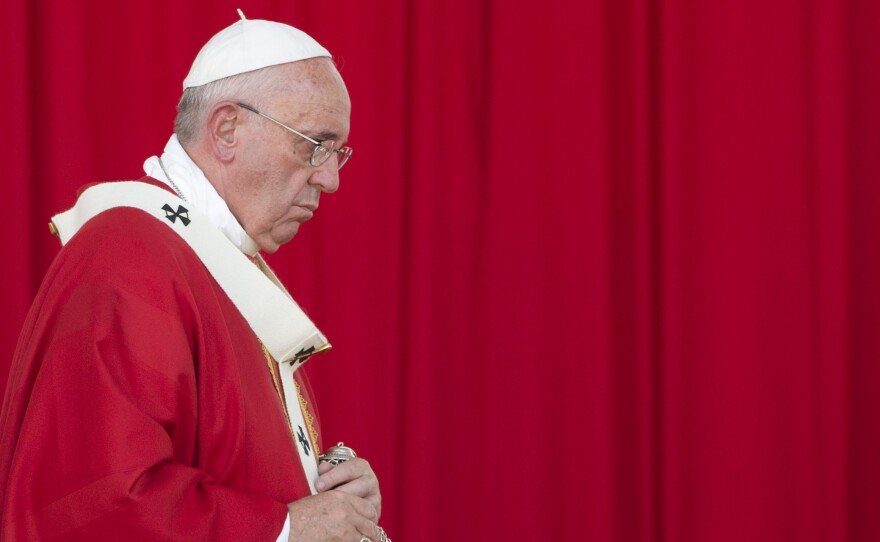On the tarmac of Jose Marti International Airport, just off his chartered Alitalia flight from Rome, Pope Francis praised his host, Cuban President Raul Castro, who was standing by his side. Francis called the recent reconciliation between Castro's Communist government and the United States a model for the world. Further extending a friendly hand, Francis gave a shout out to Castro's older brother Fidel.
Not to go too far though, the pope also expressed his regret that he could not welcome all Cubans, a reference believed to refer to the dissident community.
So has gone the delicate balancing act performed by the pope during his three-day trip to Cuba, as one of the most influential players in brokering improved relations between the two former Cold War foes tries to hold on to his key neutral position. His speeches come off more pastoral than partisan, evoking few overt political references.
Or do they?
At mass Sunday morning, celebrated in Havana's iconic Revolution Plaza, the pope urged Cubans to serve others and not ideologies. He echoed that call again to young people gathered at a Catholic community center in the shadows of Old Havana's cathedral. Dream big, he told the youth, and don't be boxed in by ideologies. Then in Holguin, a city of 300,000 in the eastern reaches of the island, the pope espoused the virtues of overcoming preconceptions and resistance to change.
Were these the words many here had hoped this Latin American pope, brought up in the more liberal Jesuit wing of the church, would speak against Cuba's Communist regime? Or was Francis just trying to guide his flock toward personal introspection?
So has gone the guessing game in Cuba. As residents soured by the regime, dissidents, and international reporters here for the papal visit, parse not just the pope's words but also his actions.
Like when Francis paid a visit to the home of former Cuban leader Fidel Castro. Described as fraternal and familial, the visit was seen as a check in the regime's legitimization column. But the pope apparently made a parting jab, wrapped in a gift to the 89-year old revolutionary figure. It was a collection of sermons by Jesuit Amando Llorente. The Spanish priest taught a young Fidel in high school, but was forced to leave Cuba during the expulsion of foreign clergy after the 1959 revolution. Llorente died in exile in Miami, five years ago.
After days of handwringing and excruciating interpretations, Vatican spokesman Father Federico Lombardi moved to put the matter to rest. A reporter asked directly whether the pope's proclamation in Holguin about overcoming resistance to change should be interpreted as a political call to the masses.
Lombardi warned against such narrow interpretations. If the pope is asking for change, Lombardi said, the best bet would be he's talking about personal transformative change — if not, then in family dynamics or for the common good. Only after all those options were exhausted, Lombardi said, would a strictly political perspective be the right guess.
Not what those waiting for democratic change in Cuba were hoping to hear from the pope.
Copyright 2015 NPR. To see more, visit http://www.npr.org/.






